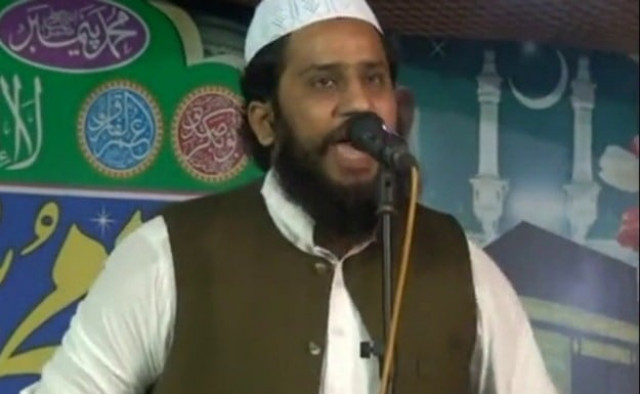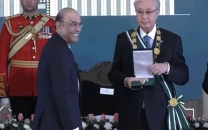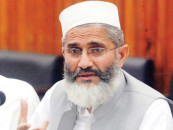MPA Masroor Jhangvi wants his name off the terror suspects list
PP-78 Jhang-II lawmaker approaches Islamabad High Court against order that placed him in the Fourth Schedule of ATA

PP-78 Jhang-II MPA Masroor Nawaz Jhangvi. PHOTO: File
Masroor Nawaz Jhangvi, son of Maulana Haq Nawaz Jhangvi, through his counsel Tariq Asad filed a petition in the Islamabad High Court challenging the order through which his name was placed in the Fourth Schedule of the Anti-Terrorism Act (ATA), 1997 on May 9, 2014.
Masroor, after his victory in the PP-78 Jhang-II by-poll in 2016, joined the Jamiat Ulema-e-Islam-Fazl (JUI-F) after objections were raised over his affiliation with the banned Sipah-e-Sahaba (renamed Ahle Sunnat Wal Jamaat).
Masroor Nawaz Jhangvi confesses sectarianism in his past
His counsel, Tariq Asad, who also represents Lal Masjid cleric Maulana Abdul Aziz and is the president of the mosque's Shuhada Foundation, said his client had been deprived of his identity.
"The interior ministry has sealed his [Masroor's] identity card and he can't open or operate a bank account and draw his salary,” he added.
"Even though he is an elected representative and a legislator of the provincial assembly, my client can't even sign an agreement or make a transaction of any kind."
The petitioner named the Ministry of Interior secretary, the Punjab Home Department secretary, the National Database and Registration Authority chairman and the State Bank of Pakistan governor as respondents.
In his petition, Masroor submitted that his affiliation with a reputed party such as the JUI-F proved that that was not involved in any terrorist activity and should not be listed in the Fourth Schedule.
Controversial cleric Masroor Jhangvi presented ‘peace award’
He further told the court that he had never been convicted by a court or nominated in any criminal case.
His counsel informed the court that the Election Commission of Pakistan had declared Masroor eligible for running in the election and that certified that he possessed all the qualities described in the clauses of the Article 62 of the Constitution.
“The grounds to be listed in the Fourth Schedule don't apply to him,” Asad said. "Three years have passed since his name was placed on the list despite the submission of a security bond as envisaged in the Section 11EE (Proscription of person) of the ATA."
Under the 11EE of the ATA, the federal government may list a person as proscribed in the Fourth Schedule if there are reasonable grounds to believe that they are affiliated with a group involved in terrorist or sectarian activities.



















COMMENTS
Comments are moderated and generally will be posted if they are on-topic and not abusive.
For more information, please see our Comments FAQ